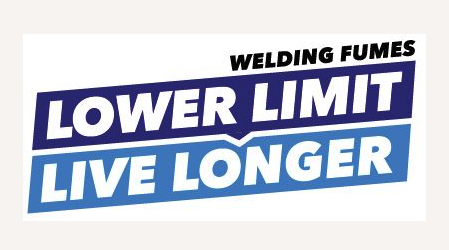
The Australian Manufacturing Workers’ Union’s (AMWU) campaign Lower Limits, Live Longer, highlights the dangers of welding fumes.
AMWU National Work Health and Safety Coordinator Dave Henry answers questions about the campaign.
Why is the AMWU concerned about welding? What is the problem?
In 2017, the science was settled, and welding fumes were reclassified as a group 1 carcinogen by the International Agency for Research on Cancer (IARC) part of the World Health Organisation (WHO).
Research published in 2022 by the WHO identified welders having an 48% higher risk of developing lung cancer than those not exposed to these fumes.
The current reliance on a workplace exposure standard (WES) that was established to protect workers (and students) against a significant increased risk of metal fume fever in the 1990s is indefensible.
Under the current WES for welding fume, welders and others exposed are notionally ‘allowed’ to breathe up to 11 grams of a known carcinogen every year.
How many people are affected by welding-related health issues?
Research from Canada’s Occupational Cancer Research Centre estimates 1.3% of lung cancers are caused by exposure to welding fumes, which in Australia would translate to 189 people diagnosed each year.
Other avoidable chronic industrial diseases include occupational asthma, welder’s pneumonia, chronic obstructive pulmonary disease (COPD), manganese poisoning (which resembles Parkinson’s disease), industrial deafness (due to some fumes being toxic to the ear) and changes in the kidney due to cadmium. The Australian Institute of Occupational Hygienists has expressed concern that the amount of workers suffering COPD are likely to drastically outnumbers those with lung cancer.
Few workers than ever receive Workers Compensation, as a result the health burden of welding fumes is unknown. This is because these illnesses tend to present later in life and our medical practitioners rarely link workers’ industrial histories when their patients present with an illness.
As a result, we have established the National Welding Fumes Exposure Register. Over time this register will provide a longitudinal research base for welding fumes and related illness, as well as provide personal industrial history information for future workers compensation claims.
The register is open to all workers who are or have been exposed to welding fumes.
Is there a way of eliminating this problem?
Yes. We are campaigning for an immediate lowering the current WES for welding fumes by 80% from the current 5mg/1m? to a contemporary level of 1mg/m?, reflective of what has been established in some European countries.
Further, we want the establishment of a welding fumes work health and safety regulation, requiring welding fumes to be maintained at the lowest level reasonably achievable.
Research shows that the current hazard controls as recommended by the Welding Processes Code of Practice 2020, where applied, are effective in reducing welding fumes to levels below 1mg/m?.
What do VET teachers need to know about this problem?
VET teachers need to be aware that welding fumes are a known carcinogen as well as causing other diseases.
They should realise that welding fumes don’t just affect the person welding, but all people within the work environment exposed to those welding fumes which can be present for hours after weldinghas finished.
Welding can be done safely, and others don’t need to be exposed to these deadly fumes. More information can be found at bit.ly/3suMzPv.
Is there anything IEU members can do to help?
We currently have a petition as part of the campaign. We are calling on Work Health & Safety ministers in every state and territory to:
1.Direct their representatives at SafeWork Australia to support lowering the limit now from 5mg/1m? to 1mg/1m?.
2. Make sure this change is immediately implemented in every state and territory.
We’re also calling for a new regulation that will require welding fumes to be kept to the lowest possible level to make sure we see follow through in our workplaces.
The AMWU would welcome the support of IEU members, adding their voice to our campaign by signing the petition at www.megaphone.org.au/petitions/lower-the-limit-for-welding-fumes.



































































































































